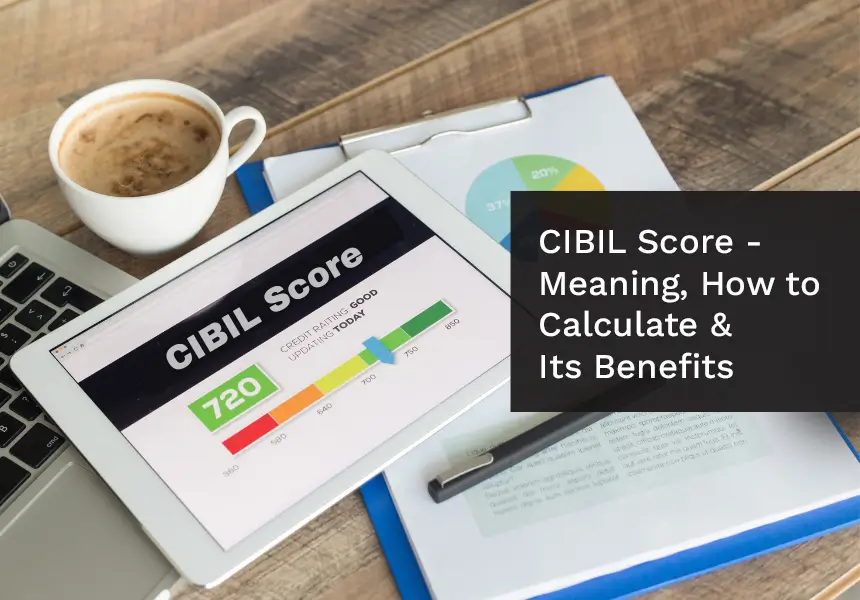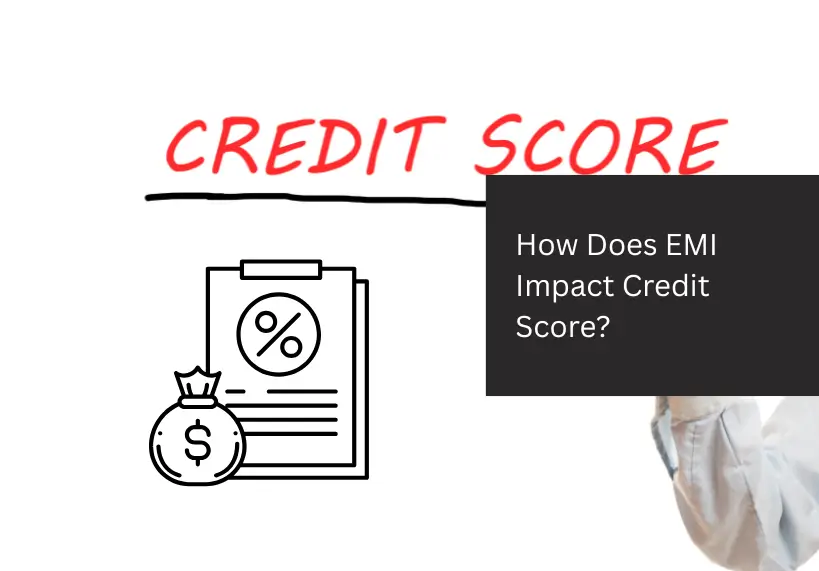
The CIBIL report, calculated by TransUnion CIBIL, is essentially your financial report card. TransUnion CIBIL is one of India’s primary credit bureaus, trusted by banks and financial institutions to assess a borrower’s creditworthiness. While there are other credit bureaus approved by the RBI, such as Experian, Equifax, and CRIF High mark, CIBIL is widely used in the Indian market.
So, how exactly can those three digits affect your loan application?
To begin with, let’s understand what exactly is a CIBIL score, how it’s calculated, and why it matters more than you think.
What is the CIBIL Score?
The CIBIL score, a credit score evaluated by the TransUnion CIBIL, ranges between 300 and 900 and denotes your creditworthiness.
A higher score can help you get faster approvals on loans and credit cards. For most banks and non-banking financial companies (NBFCs), a minimum CIBIL score of 700 is preferable.
How is the CIBIL score calculated?
The CIBIL score is calculated considering the following:
Payment History
Your payment history significantly influences your CIBIL score. You must consistently pay your credit card bills and loan EMIS on time to maintain a good score. Even a 30-day delay in payment can lower your CIBIL score by up to 100 points.
Credit Utilization
Credit utilization or credit exposure refers to the proportion of your available credit limit that you’re using. It is recommended to keep your credit utilization below 30% of your total credit card limit. A high credit utilization ratio may indicate that you’re over-reliant on credit and could be facing financial difficulties. This may categorize you as a high-risk borrower and could lead to rejection of credit applications.
Credit Type and Duration
A long credit history reflects your experience in managing credit. It includes the number of years since you opened your first credit account. Establishing a credit history early can be beneficial when you need to apply for significant loans, such as a mortgage or car loan.
The type of credit you hold also determines your CIBIL score. It’s beneficial to have a mix of secured loans (like a mortgage or auto loan) and unsecured loans (like credit cards). This mix demonstrates your ability to manage different types of credit responsibly.
Other Influential Factors
Another aspect of your CIBIL score calculation is the number of hard inquiries made into your credit report. When you apply for a loan or credit card, lenders request your credit report from the credit bureau, which is known as a hard inquiry. Multiple hard inquiries in a short period can negatively impact your score. Therefore, it’s advisable to avoid applying for multiple credit lines simultaneously.
Benefits of CIBIL Score
Enhanced Loan Eligibility
A high CIBIL score increases your chances of getting approved for loans. Lenders usually prefer individuals with scores above 700 as they are considered as low-risk. Borrowers with a good credit score are more likely to get loans at competitive interest rates and favorable terms. A good credit score can also lead to a faster loan approval process. This can be particularly valuable in time-sensitive situations, where you require quick access to funds.
Lower Interest Rates
Your CIBIL score has an important role in determining the interest rates you receive on loans and credit cards. A higher score often translates to lower interest rates, thereby helping you save money on the total interest you pay over the loan tenure.
Credit Card Benefits
A strong CIBIL score can lead to higher credit limits on your credit cards, offering greater financial flexibility.
Factors Affecting Your CIBIL Score
Below are the factors that affect your CIBIL score:
Repayment History
Repayment history is a summary of all your EMI and credit card payments. This helps in determining your credit score. By making consistent and timely payments, you can enhance your score.
Credit Utilization Ratio (CUR)
The credit utilization ratio (CUR) measures the amount of credit you have used compared to the total available credit. You must maintain a CUR below 30%. A high CUR suggests that you rely heavily on credit, thereby negatively affecting your score. While, a low CUR can incurease you chances of loan approval.
Credit Age
Credit age is the length of your credit history. A longer credit history enhances your credibility with lenders. You must keep your oldest credit card accounts open and active as regularly using these accounts and paying off the balances can help in maintaining a strong credit score.
Number of Enquiries
Everytime you apply for a credit product, lenders run through a hard inquiry on your credit report. This is noted in the “enquiry” section of your report. However, multiple hard enquiries in a short period can lower your credit score. To avoid this, you must limit the number of credit cards or loan applications.
Credit Mix
A mix credit portfolio, including credit cards, secured loans can positively influence your credit score. This shows that you can manage various types of credit responsibly.
Errors in Your Credit Report
There might be times where credit reporting agencies or lender may make mistakes when recording your payment history or loan status. Such mistakes can influence your credit score. You must review your credit report regularly for inaccuracies and contact your lender immediately if you find any discrepancies.
Conclusion
In essence, your CIBIL score is a financial blueprint that reflects your creditworthiness. By understanding how your repayment history, credit utilization, credit mix, and other factors influence your score, you can take proactive steps to maintain or improve it. A good CIBIL score not only enhances your loan and credit card eligibility but also increases your chances of getting better interest rates and terms, providing significant financial stability.
Moreover, a strong CIBIL score can be advantageous when applying for a personal loan. With a high score, you are more likely to qualify for favorable terms and conditions, offering easier and faster access to funds.
Frequently Asked Questions
How often should I check my CIBIL score?
You must check your CIBIL score at least once a year and before you apply for any major loan or credit.
What is a hard inquiry?
As a part of your loan application, lenders usually run a hard inquiry on your credit profile. However, multiple hard inquiries over a short time period can lower your score.
What is the impact of a CIBIL Score on personal loans?
A high CIBIL Score can lead to easier approval, lower interest rates, and better loan terms for personal loans. On the other hand, a low score may result in higher interest rates or loan rejection.
What is the difference between a credit report and a CIBIL Score?
A credit report is a detailed statement by a credit bureau that contains your credit history, while a CIBIL Score is a numerical representation of your creditworthiness based on the information in your credit report.
What is the minimum CIBIL Score required for a personal loan?
The minimum CIBIL Score requirement for a personal loan varies by lender. Generally, a score of 700 or above is required, and can improve your chances of getting approved with favorable terms.








